20+ Pros and Cons of Living in Spain
Ever toyed with the idea of packing your bags and starting anew living abroad in Spain? I mean, sun-soaked beaches, mouth-watering tapas, and flamenco beats are hard to resist, right?
If you’ve found yourself late-night Googling “moving to Spain” or daydreaming about sipping sangria in Seville, you’re onto something. But let’s face it, moving countries is a bit more complex than choosing a vacation spot.

A few years ago, I took the leap and made the move to Spain myself. Trust me, I’ve been through the roller-coaster of decision-making highs and relocation lows.
And that’s exactly why, by the end of this article, you’ll have a front-row seat to the real deal – the juicy perks and the not-so-fun hiccups of Spanish life. Get ready for a deep dive into the España experience!
Pros and cons of moving to Spain
Pros of living in Spain
Living in Spain comes with a blend of pros and cons. On the positive side, Spain offers a laid back lifestyle with its rich culture, vibrant festivals, and picturesque landscapes. One of the advantages of living in Spain is of course that the Mediterranean climate ensures plenty of sunny days, making it an appealing destination for those seeking warmth.
The diverse culinary scene, featuring renowned dishes like authentic Valencian paella and tapas, is a definite advantage for food enthusiasts. However, Spain does have its drawbacks. High unemployment rates in some regions can pose challenges for job seekers, and bureaucratic processes can be frustratingly slow.
Additionally, while the relaxed pace of life can be enjoyable, it might clash with the efficiency expected in certain professional settings. Balancing these factors will be crucial for anyone considering the prospect of making Spain their home.
Climate
Despite what you may think, Spain isn’t just about the endless sun, though that’s a perk for sure. The country’s got a diverse range of weather depending on where you’re at.
If hitting the slopes is your thing, the Pyrenees in the winter is a snowy wonderland perfect for skiing and snowboarding. On the flip side, when summer rolls around, you’ve got sun-kissed beaches and islands that are hard to resist.

And in between? Mild temperatures, a bit of rain, and some golden fall days. Essentially, there’s a climate pocket for everyone’s taste!
Cultural Richness
Here, you’ll find a world where history meets the present. Think about the Moorish designs in the south, Roman ruins scattered throughout, and medieval towns that take you back in time.
Each region boasts its own traditions and stories. This means that if you’re the type to immerse yourself in a new culture and learn its ins and outs, Spain offers a patchwork of experiences that’s genuinely rich.

Spain’s healthcare system pros and cons
Let’s talk healthcare. Spain’s publish health care system is pretty solid, and it’s often noted for its efficiency and quality.
Residents, whether they’re locals or foreigners, have access to public healthcare, and many services are covered or come at a nominal fee. If you’re used to long waiting times or high out-of-pocket costs, you might find Spain’s approach refreshing.
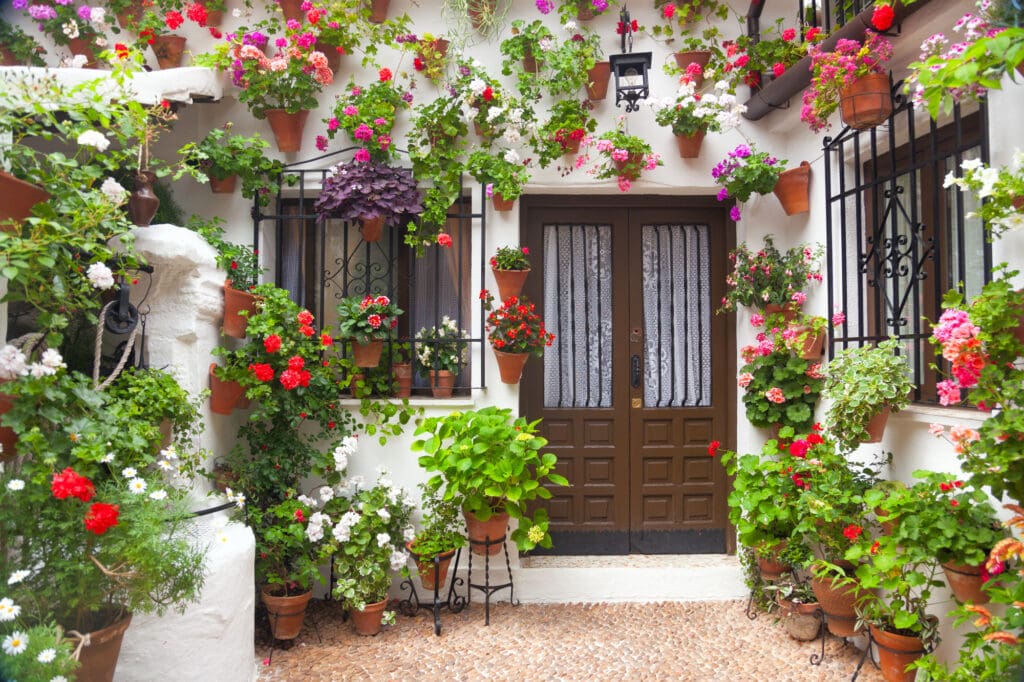
Of course, there are private health insurance options available too, if you’re looking for something specific. But they’re also very reasonably priced – I pay about EUR 40 per month for my private healthcare , for example.
All in all, knowing you’re well taken care of, health-wise, is a definite plus when living here.
Spanish Food and Cuisine
Spanish food is more than just paella, tapas, and churros, believe me (although they’re all pretty great!). The culinary scene here is deep-rooted in tradition but isn’t afraid to innovate.

You’ve got your seaside towns serving up fresh seafood, rural areas with hearty stews and roasted meats, and cities mixing the old with the new. In my case, I’m lucky enough to live in Valencia, whose most famous food is paella – and yes, the joy of getting to eat this as often as I do never gets old.
And the best bit? It’s all relatively affordable! Whether you’re grabbing a bite at a local market or sitting down at a traditional eatery, you’re in for a real taste of Spain.

Cost of Living in Spain
Spain and your wallet can be good friends. Depending on where you come from, you might find the cost of living here more manageable. Compared to other Western European countries, such as France and the UK and even Canada and North America the cost of living in Spain is among the lowest.
Big cities like Madrid and Barcelona can be a tad pricier, but once you venture into the slightly smaller cities (like Valencia, where I live), not to mention the towns and rural areas, the drop in living expenses is noticeable.
Rent, groceries, even a night out can be easier on the pocket. It gives you the flexibility to enjoy life without constantly worrying about expenses – which I think we can all agree is pretty fantastic.
Beaches and Outdoor Activities
Spain’s outdoors? It’s a playground, truly. Let’s start with the beaches – and I’m not just talking about those beaches in Barcelona where you spent an hour having a sangria during your few days in the Catalan capital.

No, I’m talking about parking yourself on the golden sands of the Costa del Sol, or the Costa Almeria, the rugged coastline of the north, or the pristine shores of the Balearic and Canary Islands. If you’re a beach bum, you’re sorted.
But Spain is more than just its coastline. Hiking trails wind through green valleys, the Camino, the desert of Taberna and mountain ranges beckon climbers, and there are ample cycling routes for the two-wheeled enthusiasts.

Whether you’re in the mood for a laid-back day by the sea or an adrenaline-pumping adventure in the wild, Spain’s got the landscape to match your vibe.
Travel Opportunities
Spain’s location is kind of a sweet spot when you think about it. With its position in Europe, you’re just a hop, skip, and a jump away from many other countries.
Fancy a weekend getaway to Portugal or a quick jaunt to France? Easy-peasy.

And let’s not forget the excellent domestic transport links. High-speed trains, well-connected airports, and road networks mean you can get from one part of the country to another without a fuss.
(Fortunately for me, these also make for some excellent day trips from Valencia, my adopted home city, but plenty of other cities also have similar experiences on offer.)
For those bitten by the travel bug, Spain is a fantastic base to explore both near and far.
Historic Cities
Spain is peppered with cities that are like time capsules. Take a stroll in Toledo, and you’ll feel the echoes of a medieval past.
Or why not wander around the narrow alleyways of Granada with the Alhambra towering above, and you’re instantly transported. How about the Gothic Quarter in Barcelona – every cobblestone and archway has a story.
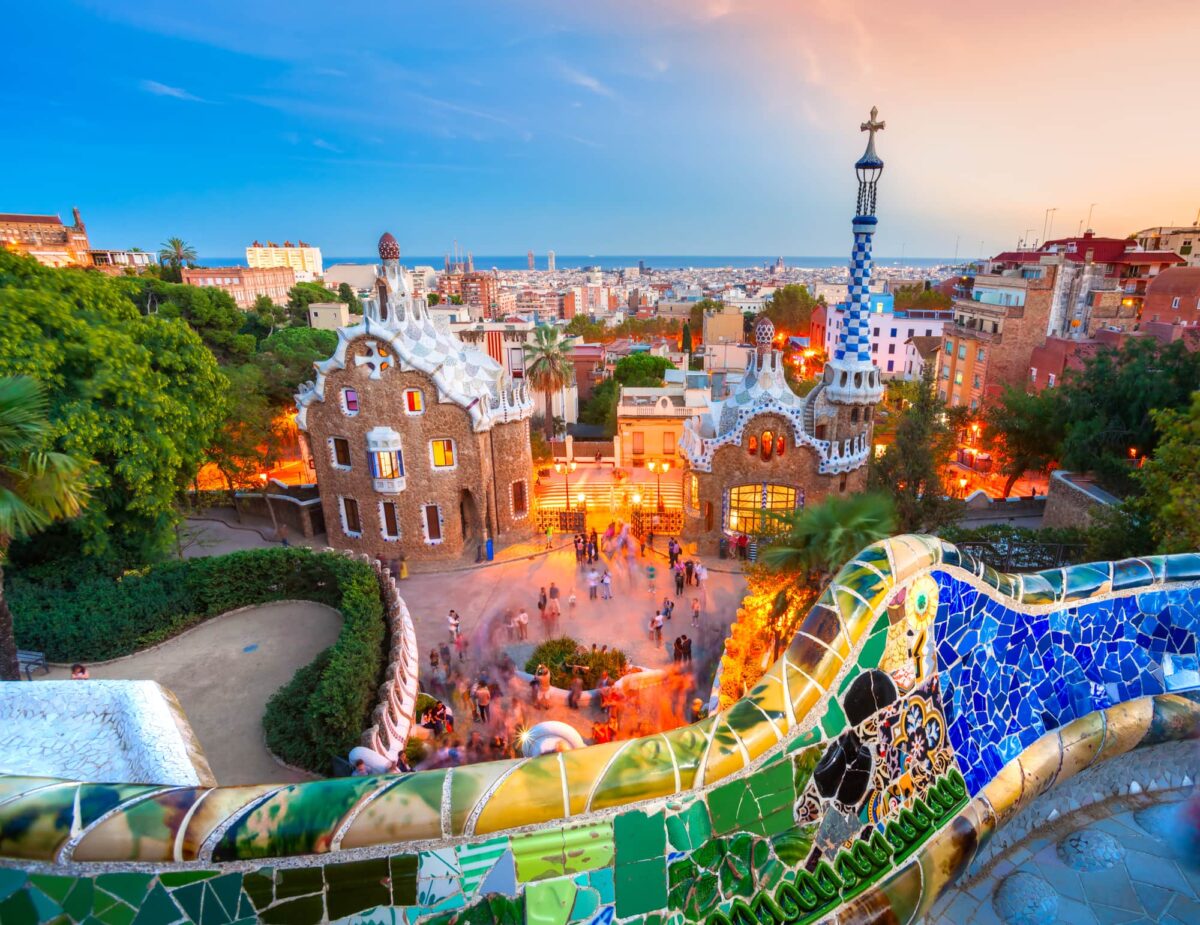
These cities blend the old with the new, offering a unique ambiance that’s both nostalgic and vibrant. Living in Spain means these historic treasures aren’t just vacation spots; they’re part of your everyday backdrop.
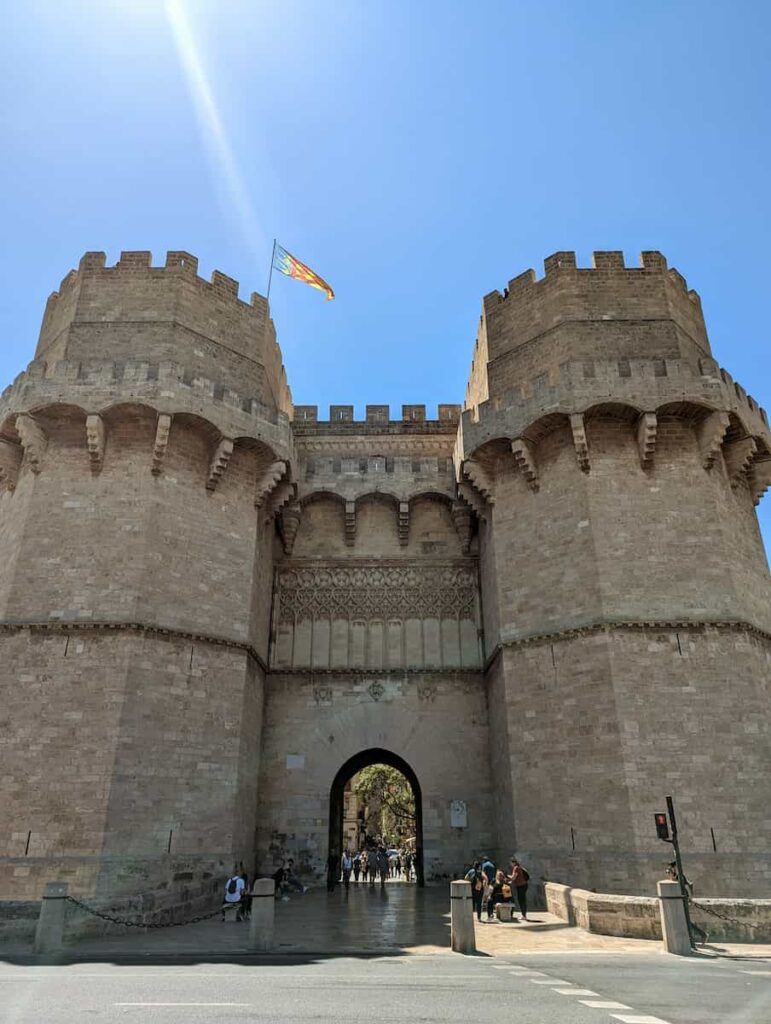
You can visit the ancient white cities of Andalucia like Malaga, Ronda and Mojacer. Enjoy Easter in traditional Spanish style with parades, cronos, live music and feasting.

Cultural Festivals
Festivals in Spain are something else. They’re not just events; they’re fully immersive experiences.
From the fiery energy of Seville’s Feria de Abril to the strange, sticky fun of La Tomatina in Buñol, each festival is a deep dive into Spain’s cultural fabric. You can enjoy the Wine and Horses Festival in Caravaca del Cruz, or spending Christmas in Spain enjoying all the magical lights, parades and treats.
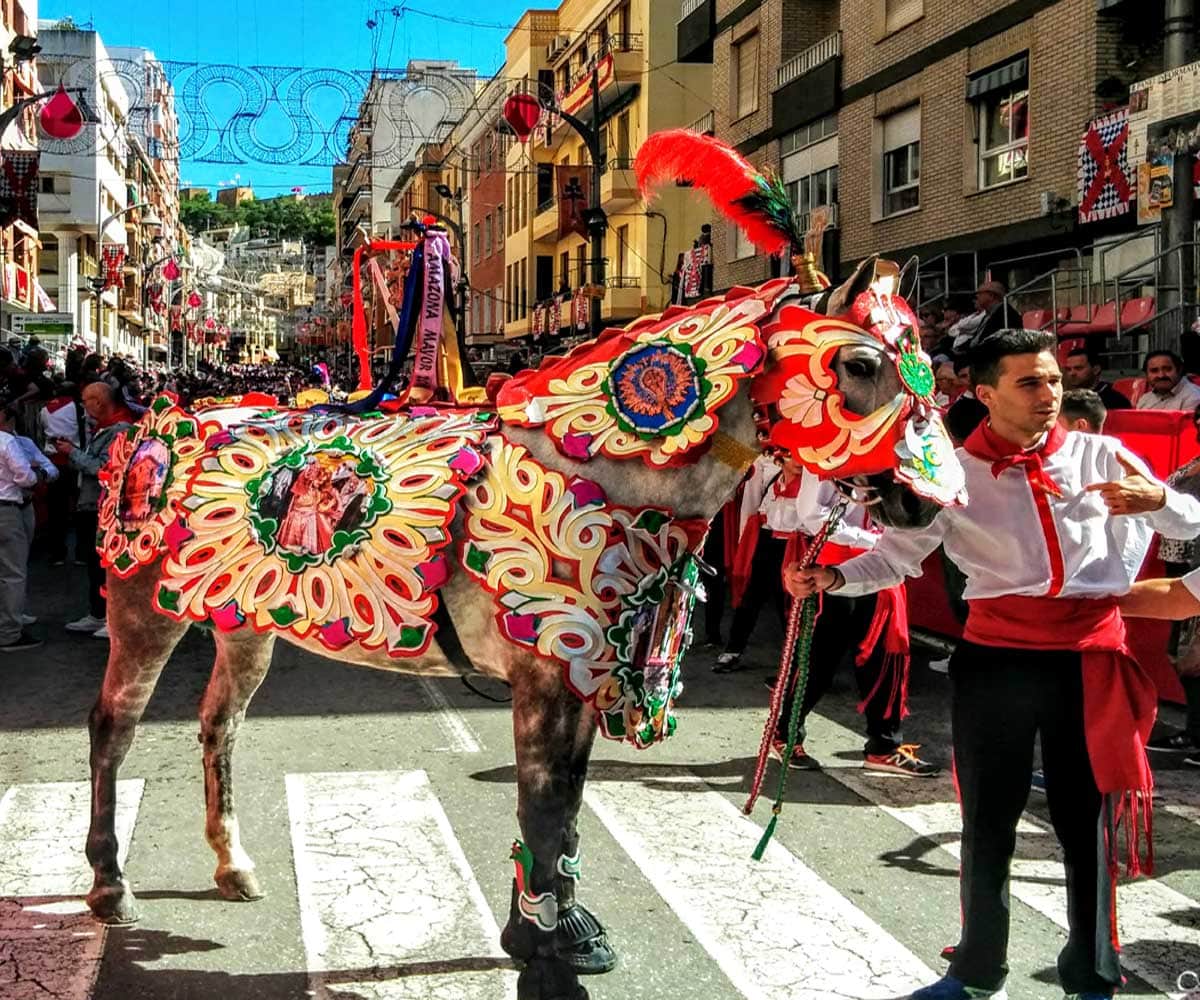
And it’s not just about the big ones. Throughout the year, towns and villages across the country celebrate local traditions with music, dance, and, yes, lots of food.

Being here gives you the chance to join in, to celebrate, and to understand the heart and soul of Spanish communities. It’s a vibe that’s hard to replicate anywhere else.
Public Transportation
Now, let’s chat about getting around. In many of Spain’s major cities, owning a car? It’s more of a luxury than a necessity.
Take Valencia, where I live, for example. Between the well-laid-out streets, bike lanes, and reliable public transit, I’ve happily ditched four wheels for two or even just my own two feet.
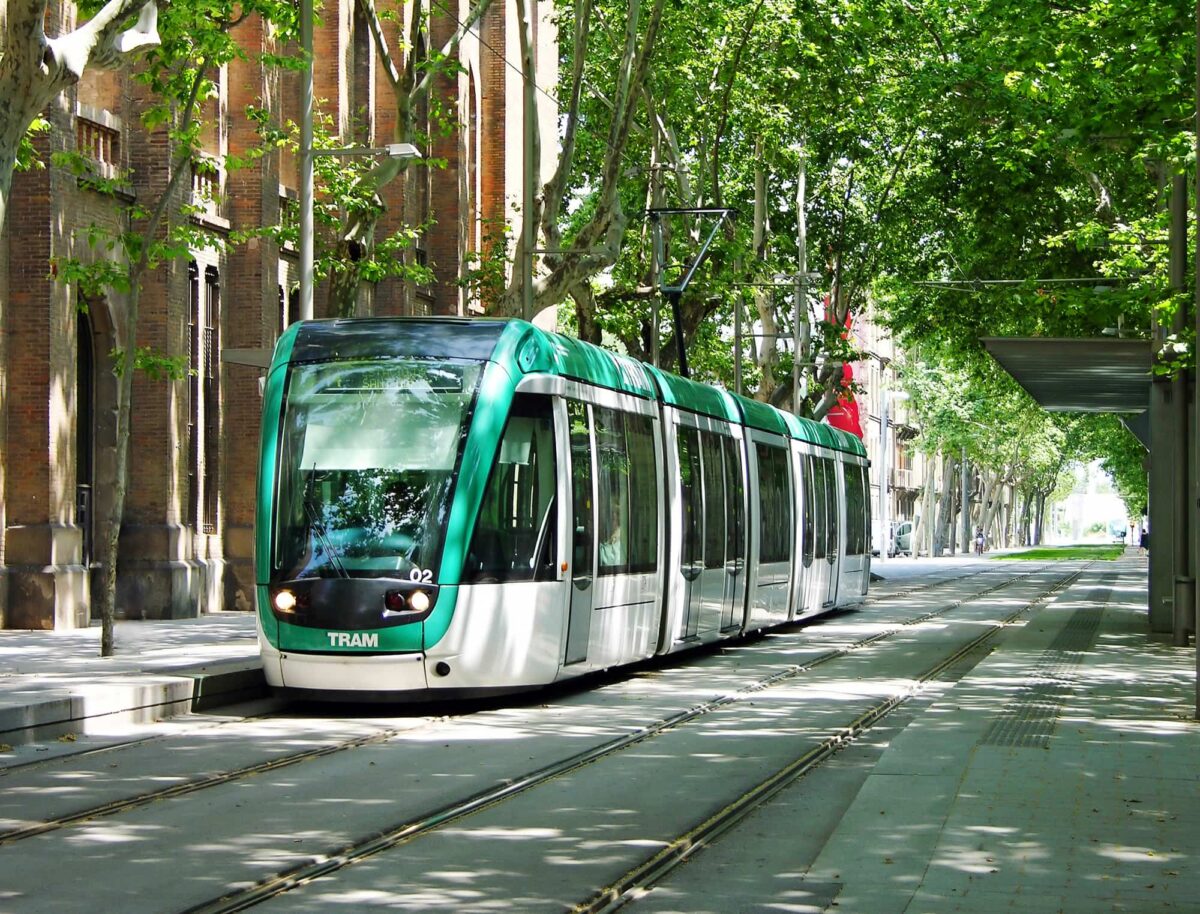
And whether you’re hopping on a metro in Madrid, catching a tram in Bilbao, or just enjoying a leisurely walk in Sevilla, city design and public transportation work hand in hand to make life flow smoothly.
For those who cherish a less car-dependent life, like me, Spanish cities are a dream.
Education
When it comes to education, Spain brings its A-game. There’s a mix of public, private, and semi-private schools that cater to a range of preferences.
Plus, for those keen on international curriculums (or for your kids learning in a particular language that’s not Spanish), there’s a good selection of international schools especially in the bigger cities.
The country values education, evident from the various programs and initiatives to enhance learning. So if you’re moving with kids or considering further studies for yourself, you can be assured of quality and choice.
Family-Friendly
Spain and families? They go hand in hand. The Spanish culture is deeply rooted in family values, and it reflects in everyday life.
Parks are filled with families on weekends, and it’s common to see multi-generational gatherings at local cafes and restaurants. Cities are equipped with child-friendly amenities, and there’s a genuine warmth towards kids wherever you go.

The relaxed pace of life allows quality family time, making it an ideal spot if you’re raising kids or simply value close-knit family bonds. Basically, in Spain, the saying “it takes a village” feels very real.
Art and Museums
If art’s your jam, then you’re in for a treat in Spain. We’re not just talking the world-famous Prado in Madrid, although that’s undoubtedly a crown jewel.
Throughout the country, there’s a vast tapestry of art spanning centuries – from Bilbao’s modern Guggenheim to the most famous museum in Barcelona, the Picasso Museum. At the same time, local galleries in towns and cities showcase both historic treasures and contemporary wonders.
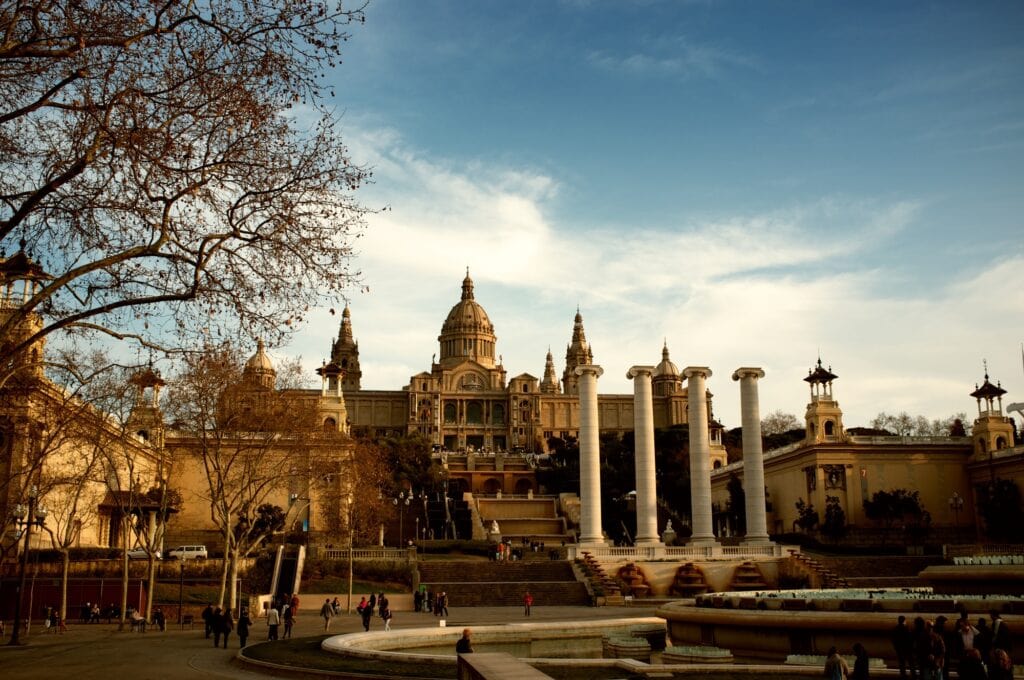
Honestly, it’s not just a place to witness art – it’s a place to live and breathe it.
Wine
Oh, the world of Spanish wine! Beyond the famed Rioja and bubbly Cava, there’s a whole landscape of vineyards to explore and varieties to taste.
Spain is dotted with wine regions, each offering unique flavors and experiences. Fancy a wine-tasting tour? Places like Ribera del Duero or Priorat welcome you with open arms.

Whether you’re a connoisseur or someone who just enjoys a good glass at dinner, the rich wine culture of Spain is something to savor.
(And my favorite part? You can get a good bottle for less than EUR 5 – seriously!)
Health and Wellness
Spain’s approach to health and wellness feels integrated into the very fabric of daily life. Most of the major Spanish cities are designed with walkability in mind.
It’s not unusual to find locals choosing to walk or cycle to their destinations, making cars take a backseat.
This preference for pedestrian life, combined with the Mediterranean diet’s emphasis on fresh produce, olive oil, and balanced meals, could be a major factor in why Spain is on track to have the longest life expectancy in the world. Here, wellness isn’t a chore or a checklist; it’s just how life naturally unfolds.

Residence Permits
Thinking about making Spain a more permanent spot? The country offers various residency options, catering to different needs.
From non-lucrative visas for those who just want to live and enjoy life, to golden visas for investors, Spain provides a range of pathways. The process, while bureaucratic (as with most places), is straightforward, especially if you come prepared.

All this means that whether you’re looking to retire, invest, or just shift gears and live in sunny Spain, there are doors open for you.
Cons of living in Spain
Not everything’s perfect here under the Spanish sun. Here are a few downsides I had the “pleasure” to discover during my move here.
Bureaucracy
Let’s get real for a moment: Spain’s love affair with paperwork is something you’ll need to brace yourself for.
From setting up bank accounts to handling residency paperwork, the bureaucratic dance can be… well, a tad slow and meticulous. And that is me being very, very diplomatic compared to some of the four-letter words I used to describe this during my own residency application.
If you are lucky enough to have arrived in Spain from an EU country and having an EU passport either by descent or because you are from an EU country getting residency is simple but long winded.
It’s not uncommon to be asked for a specific form or stamp that might seem redundant or old-school. And then the next time you go in, they may just magically need a whole new document.
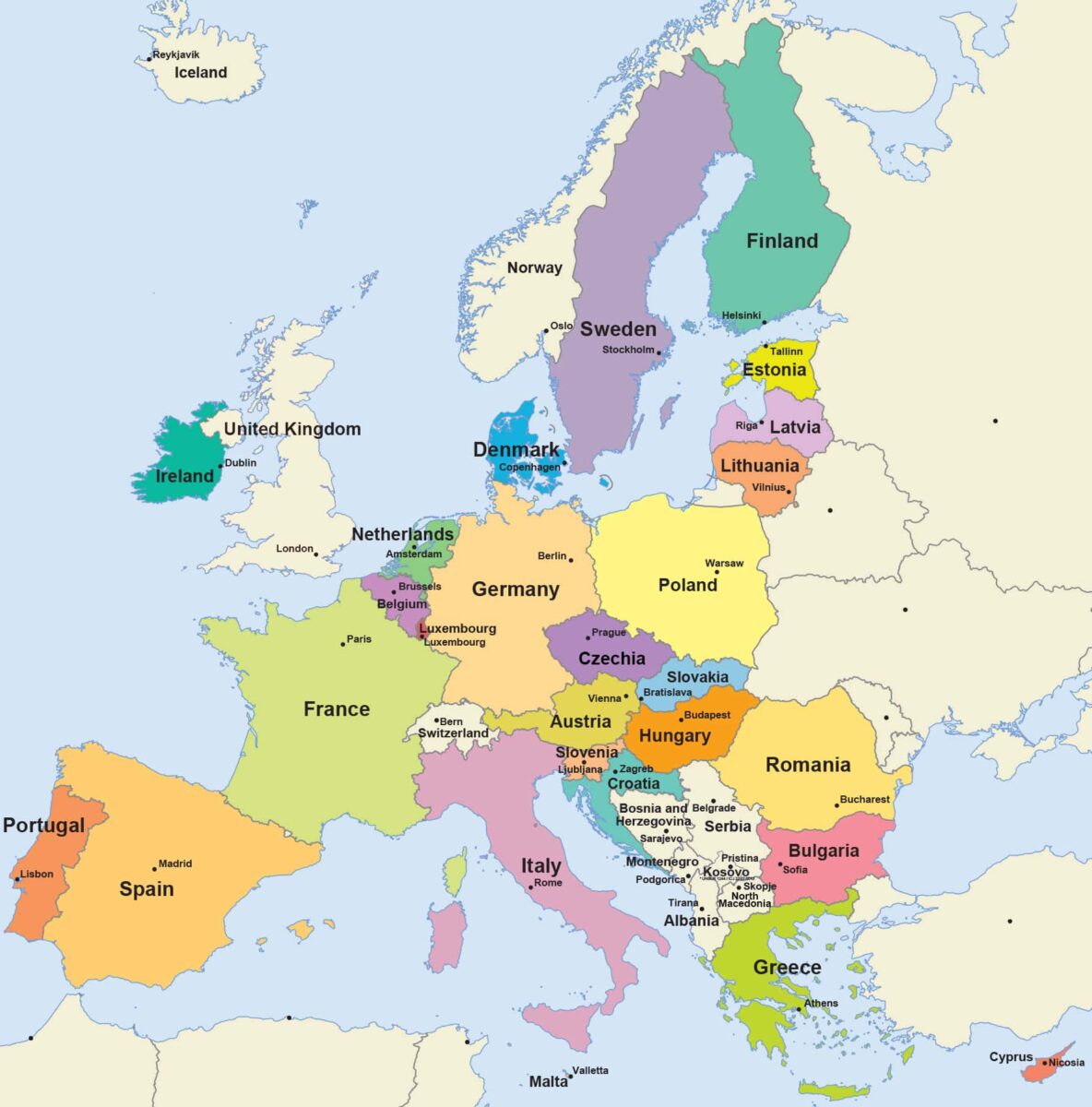
As of June 2023, Spain has a digital nomad visa scheme that allows remote workers and freelancers to live and work in Spain for a year (renewable for up to five years) as long as they meet the minimum income requirement, currently set at just €2,160 per month for an individual.
If you are American or Canadian or essentially non-EU citizen as an individual, you will need to have €2,400 as a regular guaranteed monthly income or a yearly income of €28,800. If you have dependents that will move with you to live in Spain, 100% of the IPREM is required for each; this amounts to €600 monthly or its equivalent in foreign currency.
Patience and preparation become your best allies, and while it’s all manageable, it’s certainly something to factor in when making the move.
Unemployment
While Spain boasts many wonderful things, it does grapple with unemployment issues, especially among the younger population. It varies from region to region, but job seekers might face a more competitive environment in certain sectors.
It’s essential to research the job market for your specific field before making the move. On the bright side, if you’re coming with a job already lined up or are in a high-demand sector, you might be shielded from this particular challenge.
Language Barrier
Spanish is the name of the game here. And while many in the urban centers and younger generations speak English, it’s not universally spoken.

This becomes even more noticeable in smaller towns or more rural areas. Picking up at least conversational Spanish can make daily life, from grocery shopping to socializing, a lot smoother.
And hey, think of it as a chance to immerse yourself fully and learn a beautiful new language! But initially, be prepared for some good old charades and translation apps to bridge the gap.
Work Culture
Diving into Spain’s work culture can be a bit of a culture shock for some. The traditional Spanish workday often splits with a lengthy midday break – and for most, this isn’t actually a siesta, despite what the stereotype may make you think.
Instead, many use this time for a relaxed lunch or personal errands. While this extended break can be nice, it does mean the workday can stretch longer into the evening.
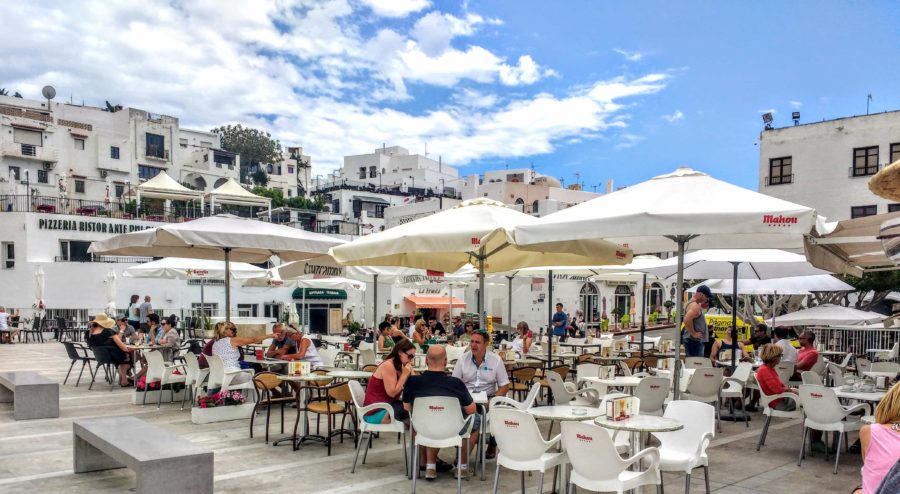
Adapting to this rhythm can take a bit, especially if you’re from a 9-to-5 grind. Also, while work-life balance is cherished, the pace and structure might feel different from what you’re used to.
Job Opportunities
I touched on this before but it’s worth mentioning the job scene again, as it’s a bit of a mixed bag. While certain sectors like tourism, tech, and renewable energy see growth and opportunities, others might feel a bit saturated.
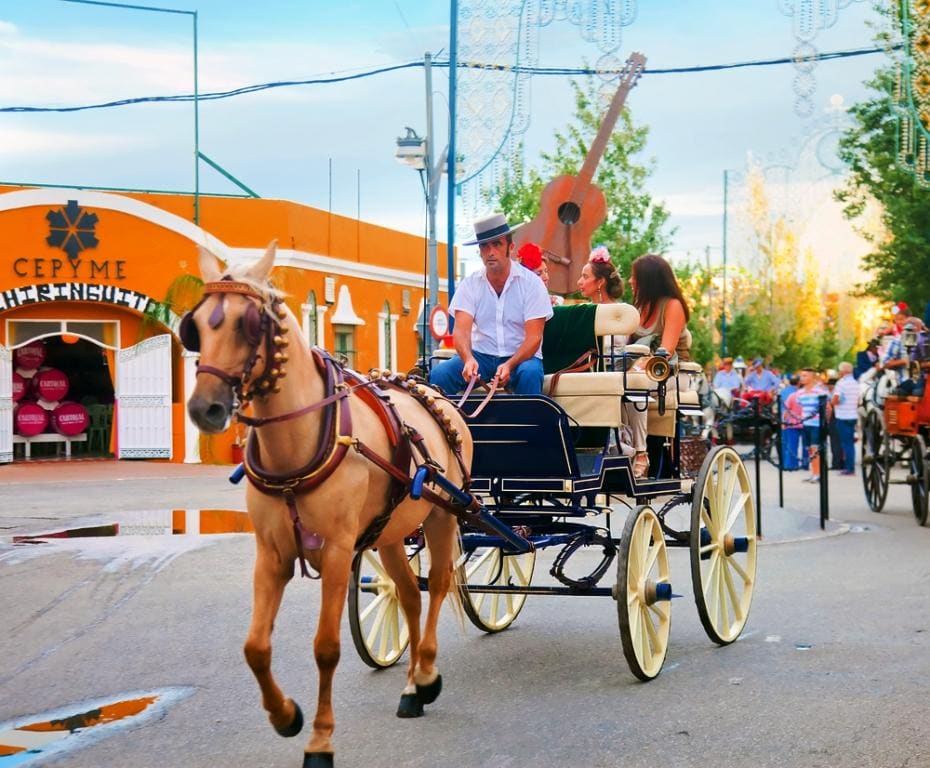
Depending on your industry and experience, you could be stepping into a vibrant job market or one that feels a touch limiting. Doing thorough research, networking, and possibly considering relocation within Spain for job prospects can be key to navigating this terrain.
Another tip: try to find a job that’s online with a company from outside of Spain. It helps you to lock in a job and it goes a long way to address the next con of moving here.
Relatively Low Salaries
Here’s a heads up: When it comes to salaries, Spain often lags behind some of its Western European neighbors. While the cost of living can be more manageable, especially outside the big cities, the paychecks definitely feel modest, especially if you’re coming from places like the UK, US, or parts of Northern Europe.
It’s crucial to balance out the salary expectations with the lifestyle perks and living costs to get a holistic picture. Sure, there are many great aspects of living here, but be prepared to possibly adjust your financial expectations a bit.

Conclusion the pros and cons of living in Spain
So there you have it – the sunny highs and occasional clouds of life in Spain. No place is picture-perfect, but Spain sure offers a broad tapestry of experiences, flavors, and memories waiting to be made.
If you’re considering the move, take a moment to weigh these pros and cons against your own priorities and dreams. Remember, every adventure has its twists and turns, but sometimes, those very surprises make the journey unforgettable.
I certainly don’t regret moving here overall – and I suspect you won’t either!
